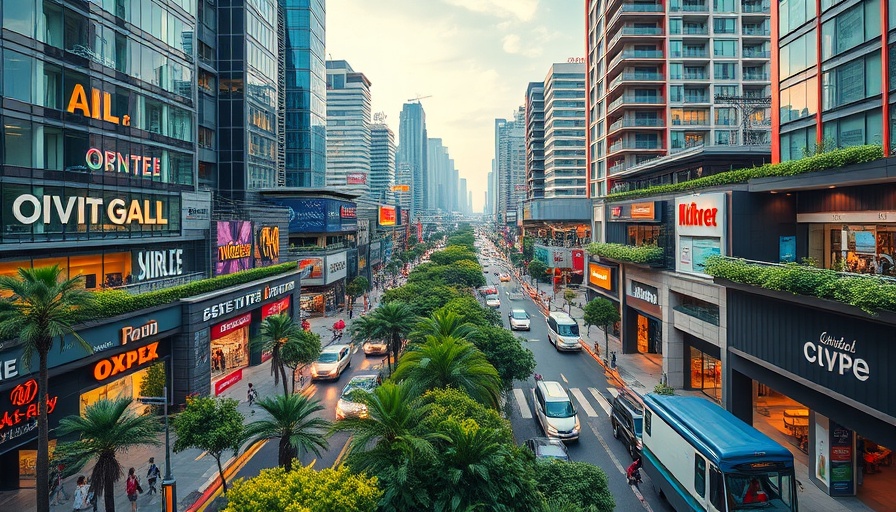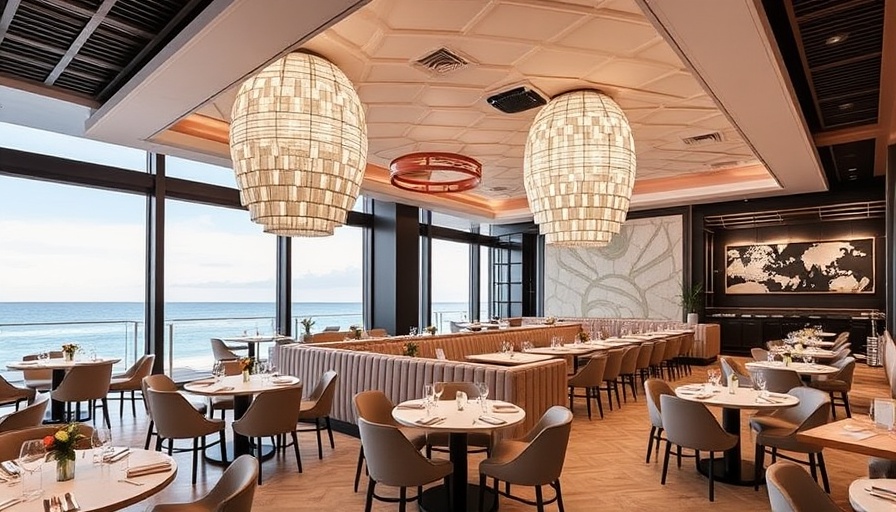
Miami Worldcenter Sets the Stage for Major Retail Opportunity
The developers behind the remarkable Miami Worldcenter have taken a bold step by listing the retail component of their mixed-use development for sale, eyeing offers upwards of $300 million. This substantial investment opportunity comes at a time when Miami's retail market remains tightly knit, boasting a low vacancy rate, making the timing of this sale particularly strategic.
A Closer Look at Miami Worldcenter’s Retail Space
The retail area spans 273,000 square feet and is fully leased to an impressive lineup of tenants, including well-known brands like Apple, Lululemon, and the Museum of Ice Cream. Such high-profile tenants not only solidify the commercial viability of the retail space but also enhance the overall allure of the Miami Worldcenter as a shopping destination. The presence of diverse eateries and entertainment venues, such as Club Studio and Lucky Strike, creates a vibrant community hub.
Implications of a Changing Retail Landscape
According to recent data from Colliers, the Miami-Dade retail market is keeping its momentum with a vacancy rate stagnant at 2.9%, indicating ongoing demand for quality retail spaces. This coupled with Miami Worldcenter’s fully leased status makes it a potentially lucrative purchase for investors. The successful leasing of this property adds a compelling narrative to its sale, suggesting that retail performance in urban areas can still flourish, contrary to the trends seen in other U.S. towns.
Future Prospects for Miami Worldcenter
Miami Worldcenter is not just about retail; it is part of a larger vision involving 12,000 residential units and extensive office and hospitality spaces, creating a dynamic urban ecosystem. The developers, a collaboration involving Art Falcone, Nitin Motwani, and CIM Group, seem poised to capitalize on this momentum through a possible recapitalization of ownership now that the retail space is operational.
Community Impact and the Future of Urban Development
The Miami Worldcenter project exemplifies how urban developments can shape community dynamics. Its potential to attract visitors and residents aims to bolster not just commercial success but also enhance local culture and lifestyle. As developments like these take root, they can precipitate further investments and improvements in urban infrastructure, ultimately benefiting homeowners across Florida as property values may rise in adjacent areas.
In summary, the potential sale of the retail component of Miami Worldcenter presents an exciting chapter not only for investors eager to tap into Miami’s thriving market but also for residents who are witnessing the transformation of their urban landscape. With careful analysis and compassion for community needs, such projects can be a boon for local economies.
 Add Row
Add Row  Add
Add 





Write A Comment